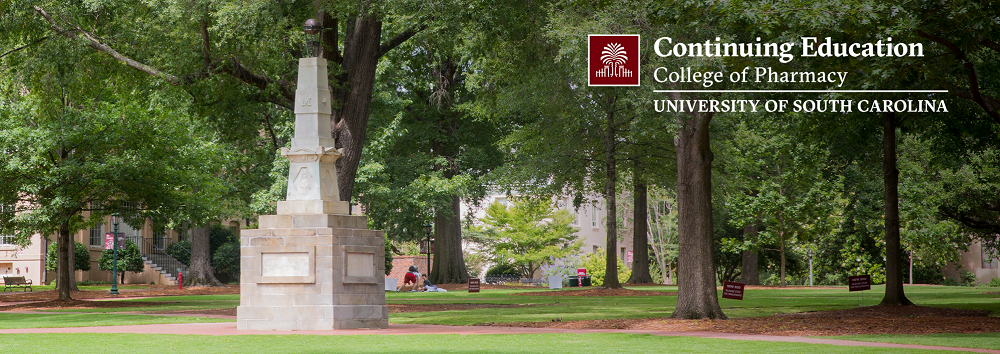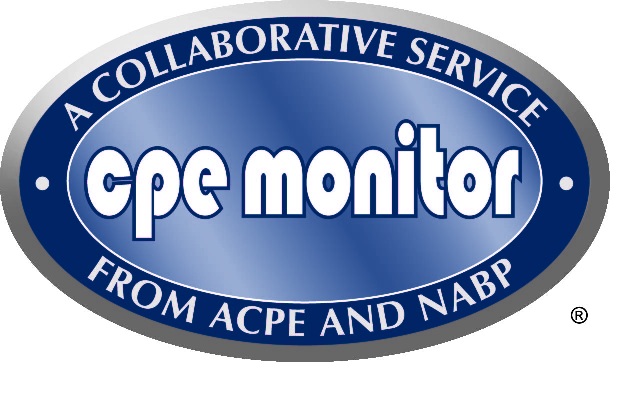
 |
Jordan Cooler, PharmD, BCPP; Clinical Assistant Professor, University of South Carolina College of Pharmacy; Psychiatric Pharmacist, University of South Carolina Student Health Center
|
Drugs of Abuse: A Focused Update on Abuse and Monitoring
|
| Educational Objectives: After completing this program, the pharmacist will be able to: 1. Identify risk factors for inappropriate use of controlled substances and other prescription and non-prescription drugs of abuse 2. Explain best practices for identifying and mitigating drug abuse and misuse based on available data 3. Apply recommendations in a specific pharmacy practice setting |
||
 |
Julie Sease, PharmD, FCCP; Senior Associate Dean and Professor,
University of South Carolina College of Pharmacy
|
Hypertension: Classification, Management, and Monitoring of the Most Common Disease State
|
|
Educational Objectives:
After completing this program, the pharmacist will be able to: 1. Use patient case information to categorize a patient as having normal blood pressure, elevated blood pressure, stage 1 hypertension, or stage 2 hypertension and assign an appropriate evidence based blood pressure goal for the patient 2. Recommend an appropriate initial evidence based treatment plan (including nonpharmacologic and pharmacologic therapies) for a patient based on their presenting blood pressure value and patient specific factors (including compelling indications, laboratory evaluation, and ASCVD risk) 3. Justify an appropriate evidence based treatment plan for a patient who is not meeting blood pressure goal on their current regimen 4. Educate a patient who will be conducting home blood pressure monitoring about the guideline-recommended way to complete this |
||
 |
Cynthia Phillips, PharmD, CDE; Clinical Associate Professor, University of South Carolina College of Pharmacy; Clinical Pharmacist, Prisma Health Richland
|
Determining Decisions and Deciphering Dilemmas in Dyslipidemia with Updated
American College of Cardiology/American Heart Association Cholesterol Guidelines |
| Educational Objectives: After completing this program, the pharmacist will be able to: 1. Investigate patient risk of atherosclerotic cardiovascular disease (ASCVD) using risk calculators and risk enhancing factors 2. Analyze updates in the American College of Cardiology (ACC) /American Heart Association (AHA) Cholesterol Guidelines 3. Discuss the appropriate use of non-statin therapies in ASCVD prevention 4. Apply updated ACC/AHA Cholesterol Guidelines to patient cases |
||
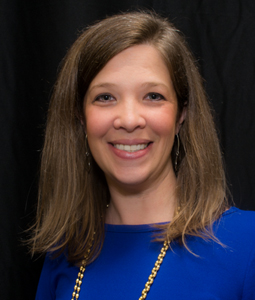 |
Brie Dunn, PharmD; Associate Dean for Outcomes Assessment &
Accreditation and Clinical Associate Professor, University of South Carolina College of Pharmacy
|
Beyond Diabetes: Benefits of SGLT2 Inhibitors and GLP-1 Agonists
|
| Educational Objectives: After completing this program, the pharmacist will be able to: 1. Describe the advantages and disadvantages of SGLT2 inhibitors and GLP-1 agonists 2. Identify potential benefits of SGLT2 inhibitors and GLP-1 agonists based on recent clinical trial data 3. Compare and contrast cardiovascular and renal benefits for available SGLT2 inhibitors and GLP-1 agonists 4. Develop and justify an evidence-based plan for a specific patient in order to provide cardiovascular and/or renal benefit. given a case scenario |
||
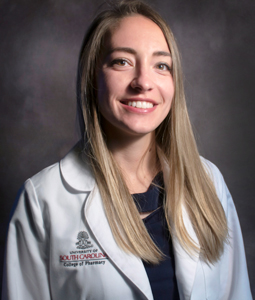 |
Hana Rac Winders, PharmD, BCIDP; Lead Antimicrobial Stewardship Pharmacist, Antimicrobial Stewardship Collaborative of South Carolina (ASC- SC); Clinical Assistant Professor, University of South Carolina College of Pharmacy
|
Community Acquired Pneumonia Update
|
| Educational Objectives: After completing this program, the pharmacist will be able to: 1. Identify the differences between the 2007 and 2019 community-acquired pneumonia (CAP) guidelines 2. Discuss the evidence behind recommendations in the new CAP guidelines 3. Apply the new CAP guidelines to patient cases 4. Recognize the pharmacist's role in antimicrobial stewardship relating to the treatment of CAP |
||
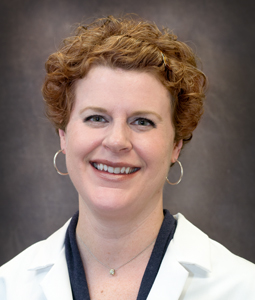 |
Jill Michels, PharmD, DABAT; Clinical Associate Professor, University of South Carolina College of Pharmacy; Managing Director, Palmetto Poison Center
|
Management of Pit Viper and Black Widow Envenomation
|
| Educational Objectives: After completing this program, the pharmacist will be able to: 1. Discuss treatment myths associated with pit viper envenomation. 2. Recommend supportive treatment for pit viper envenomation. 3. Compare Crotalidae Polyvalent Immune Fab (Ovine) antivenom to Crotalidae Immune F(ab’)2 (Equine) antivenom 4. List treatment options for black widow spider bite |
|
|
Hours | Pharmacists |
|
Entire Program:
To Purchase the entire program,
click on "Purchase Now" below!
|
7 hours
|
$75 |
|
Individual Sessions
To purchase individual sessions, check the session(s) you would like to purchase on the list below!
|
1-6 hours | $15 per session |
- Operating System: Windows, Mac OS and Linux
- Internet Browser: Internet Explorer 7.0 or higher; Mozilla Firefox 3.0 or higher; Google Chrome
- Computer Speakers or headphones connected to your computer
- Broadband Internet Connection: Cable, High-speed DSL or T1
- Monitor Screen Resolution: 320x480 or higher
- Media Viewing Requirements: Adobe Reader, Adobe Flash Player, Microsoft Power Point and HTML
Fee
CE Hours
CE Units
Activity Type
- Knowledge-Based and Application-Based
Target Audience(s)
- Pharmacists
Accreditation(s)

|
The University of South Carolina College of Pharmacy is accredited by the Accreditation Council for Pharmacy Education as a provider of continuing pharmacy education.
|
Requirements for CE Credit
Support/Credits
- Identify risk factors for inappropriate use of controlled substances and other prescription and non-prescription drugs of abuse
- Explain best practices for identifying and mitigating drug abuse and misuse based on available data
- Apply recommendations in a specific pharmacy practice setting
Speaker(s)/Author(s)
|
Jordan Cooler Haygood, PharmD, BCPP
|
Activity Number
0062-0000-20-007-H01-P
CE Hours
Fee
- Use patient case information to categorize a patient as having normal blood pressure, elevated blood pressure, stage 1 hypertension, or stage 2 hypertension and assign an appropriate evidence based blood pressure goal for the patient
- Recommend an appropriate initial evidence based treatment plan (including nonpharmacologic and pharmacologic therapies) for a patient based on their presenting blood pressure value and patient specific factors (including compelling indications, laboratory evaluation, and ASCVD risk)
- Justify an appropriate evidence based treatment plan for a patient who is not meeting blood pressure goal on their current regimen
- Educate a patient who will be conducting home blood pressure monitoring about the guideline-recommended way to complete this
Speaker(s)/Author(s)
|
Julie Sease, PharmD, FCCP, BCPS, CDCES, BCACP
|
Activity Number
0062-0000-20-008-H01-P
CE Hours
Fee
- Investigate patient risk of atherosclerotic cardiovascular disease (ASCVD) using risk calculators and risk enhancing factors
- Analyze updates in the American College of Cardiology (ACC) /American Heart Association (AHA) Cholesterol Guidelines
- Discuss the appropriate use of non-statin therapies in ASCVD prevention
- Apply updated ACC/AHA Cholesterol Guidelines to patient cases
Speaker(s)/Author(s)
|
Cynthia Phillips, PharmD, CDCES
|
Activity Number
0062-0000-20-009-H01-P
CE Hours
Fee
- Describe the advantages and disadvantages of SGLT2 inhibitors and GLP-1 agonists
- Identify potential benefits of SGLT2 inhibitors and GLP-1 agonists based on recent clinical trial data
- Compare and contrast cardiovascular and renal benefits for available SGLT2 inhibitors and GLP-1 agonists
- Develop and justify an evidence-based plan for a specific patient in order to provide cardiovascular and/or renal benefit. given a case scenario
Speaker(s)/Author(s)
|
Brie Dunn, PharmD
|
Activity Number
0062-0000-20-010-H01-P
CE Hours
Fee
- Identify the differences between the 2007 and 2019 community-acquired pneumonia (CAP) guidelines
- Discuss the evidence behind recommendations in the new CAP guidelines
- Apply the new CAP guidelines to patient cases
- Recognize the pharmacist's role in antimicrobial stewardship relating to the treatment of CAP
Speaker(s)/Author(s)
|
Hana Rac Winders, PharmD, BCIDP
|
Activity Number
0062-0000-20-011-H01-P
CE Hours
Fee
- Discuss treatment myths associated with pit viper envenomation.
- Recommend supportive treatment for pit viper envenomation.
- Compare Crotalidae Polyvalent Immune Fab (Ovine) antivenom to Crotalidae Immune F(ab’)2 (Equine) antivenom
- List treatment options for black widow spider bite
Speaker(s)/Author(s)
|
Jill Michels, PharmD, DABAT
|
Activity Number
0062-0000-20-012-H01-P
